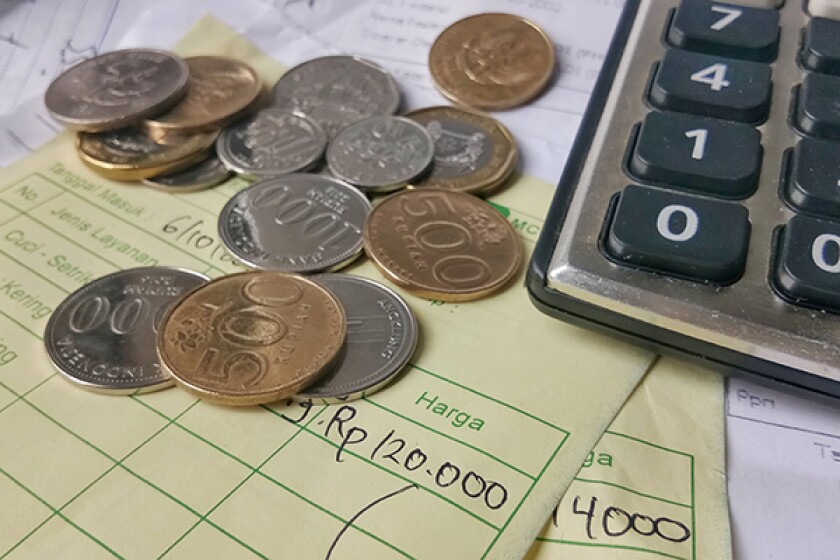On July 2 2019, the Directorate General of Taxes (DGT) issued Regulation No. Per-13/PJ/2019 (PER-13) regarding certain documents treated as equivalent to tax invoices. PER-13 is effective from September 1 2019 and revokes the DGT's previous regulation No. PER-10/PJ/2010, which has been amended several times, most recently by PER-33/PJ/2014.
The major changes in PER-33 are as follows:
The new regulation provides wider coverage of tax payment slips (SSP) and import declaration forms (PIB). The summary is as follows:
SSP or other means equivalent to SSP include payment evidence using a form or other payment method in the form of:
a) state revenue receipt (Bukti Penerimaan Negara, or BPN); or b) customs, excise and tax payment slip (Surat Setoran Pabean, Cukai dan Pajak, or SSPCP).
Import declaration form (PIB) shall include:
a) normal PIB; b) special PIB (PIBK); c) customs declaration on personal items of passengers and crew; d) customs declaration on imported goods to be stockpiled in bonded zone; e) customs declaration on goods originally imported using import facilities for export purpose (KITE) facility; f) stipulation letter on import duty, excise and/or tax on imported goods sent by post; and g) other PIB.
There are new documents added to the list, additional requirements on certain documents to be equivalent to a tax invoice, and one document is deleted from the list. The summary is below.
New documents added to the list:
1) Documents used for ordering excise tape for tobacco products (CK-1);
2) In the case of import VAT paid on customs assessment notice, import declaration form (PIB) that attaches the SSP and customs assessment notice, provided that the PIB and customs assessment notice contain the same identity of the goods' owner; and
3) SSP on payment of VAT on release/delivery of taxable goods and/or services from free zones to other Indonesian customs area accompanied by customs declaration for release of goods or invoice/contract for delivery of services and/or intangible goods.
Additional requirements on certain documents to be equivalent to a tax invoice:
1) Export declaration form (PEB) should now attach a bill of lading or airway bill.
2) SSP for payment of VAT on utilisation of intangible goods or taxable services from outside the customs territory should now attach the invoice and details of the type and amount of the intangible goods/services.
3) PIB can be categorised as a "certain document equivalent to tax invoice" provided:
i) it contains a state revenue transaction number (Nomor Transaksi Penerimaan Negara, or NTPN); and
ii) it is included in the computer system of the Directorate General of Customs and Excise (DGCE) and has been electronically exchanged with the Directorate General of Tax.
Document that no longer qualifies as a tax invoice:
Invoice of delivery receipt (BNBP) issued by Pertamina on delivery of fuel oil and non-fuel oil.
Change in progressive ranges as basis for computation of import and export duty penalty
On May 15 2019, the government issued Regulation No. 39 of 2019 (GR-39) to amend GR No. 28 of 2008 (GR-28) on the customs penalty. As an implementing regulation to GR-39, the Ministry of Finance also issued Regulation No. PMK-99/PMK.04/2019 (PMK-99) on July 9 2019. Both GR-39 and PMK-99 are effective from July 15 2019.
The major change in GR-39 is that this GR changes the progressive range as the basis for imposition of import and export duty penalties. The prevailing GR stipulated that the import and export duty penalty ranges from 100% to 1,000%, which is imposed progressively based on the percentage of underpaid duty compared to the duty that has been paid. The comparison of progressive ranges is shown in Table 1.
PMK-99 further stipulates the procedures/guidelines for computation of penalties in the field of customs.
Table 1 |
|||
GR-28 (Old) % of Underpayment |
% Penalty |
GR-39 (New) % of Underpayment |
% Penalty |
for up to 25% |
100% |
for up to 50% |
100% |
> 25% - 50% |
200% |
> 50% - 100% |
125% |
> 50% - 75% |
400% |
> 100% - 150% |
150% |
> 75% - 100% |
700% |
> 150% - 200% |
175% |
> 100% |
1000% |
> 200% - 250% |
200% |
> 250% - 300% |
225% |
||
> 300% - 350% |
250% |
||
> 350% - 400% |
300% |
||
> 400% - 450% |
600% |
||
> 450% |
1000% |
||
Change in procedures for implementation of preferential import duty tariffs based on international agreements
As a result of the implementation of the Protocol to Amend the Framework on Comprehensive Economic Co-Operation and Certain Agreements thereunder between ASEAN and China, and the Comprehensive Economic Partnership Agreement between Indonesia and Chile, on July 31 2019, the Ministry of Finance (MoF) issued Regulation No. 109/PMK.04/2019 (PMK-109) as the second amendment to MoF regulation No. 229/PMK.04/2017 regarding the procedures for implementation of preferential import duty tariffs based on international agreements.
The major changes in the regulation are summarised as follows:
Added the Indonesia-Chile Comprehensive Economic Partnership Agreement (IC-CEPA) into the list of international agreements that apply preferential import duty tariffs in Indonesia, so that the new list is as shown in Table 2.
Certificate of origin (CoO) using third country/third party invoicing should meet the following requirements: includes the third country/third party invoicing, third party i.e. company's and/or country name, invoice number of third party or invoice number of original goods in CoO, conducted based on the relevant international agreement.
Table 2 |
||
No |
FTA/EPA Framework |
Type |
1 |
ATIGA (ASEAN) |
FTA ASEAN |
2 |
ASEAN - CHINA |
FTA ASEAN |
3 |
ASEAN - KOREA |
FTA ASEAN |
4 |
INDONESIA - JAPAN |
EPA - Bilateral |
5 |
ASEAN - INDIA |
FTA ASEAN |
6 |
ASEAN - Australia - New Zealand |
FTA ASEAN |
7 |
INDONESIA - Pakistan |
PTA Bilateral |
8 |
ASEAN - JAPAN |
FTA ASEAN |
9 |
Memorandum of INDONESIA - Palestin |
MOU - Bilateral |
10 |
INDONESIA - CHILE |
FTA ASEAN |
Re-export of imported goods
The minister of finance (MoF) has issued Regulation No. PMK-102/PMK.04/2019 (PMK-102) regarding the re-export of imported goods.
The re-export of goods originally from import can be done in the following cases:
1) does not match what was ordered;
2) wrong shipment;
3) broken; and/or
4) imported goods prohibited to be imported in accordance with statutory provisions.
The re-export of goods cannot be done in the following cases:
Import declaration has not been submitted, and customs enforcement has been carried out due to:
a) Incorrect quantity of packages; b) No physical goods match in customs declaration (e.g. manifest); c) The goods are not included in the declaration submitted by the transporter; and d) Importation of the goods is restricted or limited and the goods are not declared to customs, as well as if the importer does not have a licence to import.
Import declaration has been submitted but the type and quantity of goods do not match, unless imported by an authorised economic operator (AEO), importer with MITA status, or importer with low risk status.
The re-export of imported goods shall be carried out under the approval of the head of the customs office. The head of the customs office must issue the approval/rejection within two days from when the properly completed application is submitted.
MoF Regulation No. PMK-102/2019 will become effective on August 28 2019 and revokes the previous Regulation No. 149/PMK.04/2007.
GNV
E: info@gnv.id
W: www.gnv.id













